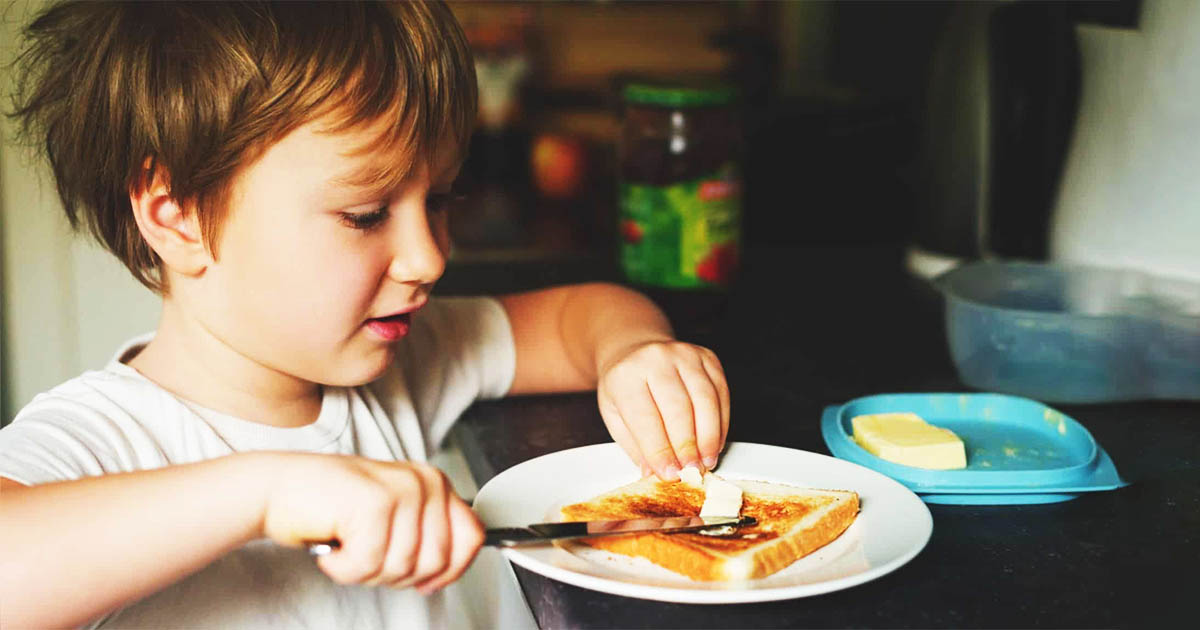We, as parents and caregivers, desire to bring up independent kids who are self-sufficient, resilient, and assertive enough to deal with life difficulties gracefully without ever giving up. However, in a society where independence is often overshadowed by achievement, it is sometimes hard to achieve this.
In this full guide, we look at the importance of raising independent children and also suggest practical tips for parents on how they can build this quality in their children.
Our goal is to provide parents with research-supported insights and real-life experiences that will enable them to remove any obstacles from the way of their children as they strive for independence.
Significance Of Building Independence In Children
The need to enhance independent kids is significant for their holistic growth and future triumph.

Here are some of the most important reasons why promoting independence in children is crucial:
1. Self-Reliance:
Independence teaches children not to always depend on others but themselves. This builds self–esteem, empowering them that they can handle different situations independently.
In their independent quests, they develop trust in their abilities which is necessary for resilience and adaptability when faced with challenges.
2. Problem-Solving Skills:
Allowing children to attempt tasks on their own develops problem-solving skills. It helps them gain the ability to analyze situations, think critically, and independently find answers thereby improving their ability to handle life’s challenges effectively.
Independence fosters a culture of curiosity and resourcefulness by encouraging them to pursue alternative approaches and think creatively as response mechanisms in a world where change has become inevitable for success.
3. Resilience:
Independence empowers children with the spirit of resilience when facing problems. They get better at handling setbacks and failures in life if they have learned how to overcome obstacles alone; this instills a mentality of persistence and adjustability in them.
Through independent problem-solving as well as decision-making, kids learn how they can bounce back from adversity in addition to building confidence within themselves such that they can overcome any hurdle and still thrive even under challenging circumstances like these.
4. Sense of Responsibility:
Giving independent kids tasks helps them develop a sense of responsibility. They become responsible for their actions and learn the results of decision-making which leads to accountability and maturity.
Independence gives children the power to make decisions based on information, as well as proactive steps they can take in preparation for future responsibilities.
Parents and caregivers enable children to internalize a high sense of personal responsibility and integrity by entrusting them with age-appropriate chores to expose them to the natural consequences of their wrongdoings.
5. Improved Self-Esteem:
Acquiring new skills and doing things alone boosts children’s self-esteem. It makes them proud of themselves because they have reached their goals, thus enhancing satisfaction with life, and shaping positive self-image and confidence in oneself.
By becoming independent, kids can discover what they are good at which will boost their self-esteem and promote self-worthiness; this is achieved when they begin to succeed through their efforts hence building an unwavering self-confidence that forms the base upon which one pursues his aspirations.
Fostering independence in children is essential for their holistic development and long-term well-being. By promoting self-reliance, problem-solving skills, resilience, a sense of responsibility, and improved self-esteem, parents and caregivers empower children to navigate life’s challenges with confidence and determination.
How To Raise Independent Kids
For their development and future victories, it is necessary to raise independent kids.

Here are ten parental tips on how to raise independent kids:
1. Encourage them to make decisions
Allow your child to participate in decision-making processes such as the selection of clothes, snacks, or extracurricular activities. This will help them learn how to choose and gain trust on its basis.
This enables them to make informed choices and build on critical thinking skills, enabling them to be able to make expert choices when they grow up.
2. Assign age-related chores
Assign responsibilities that correspond with your children’s respective ages around the house. This teaches them about the significance of family contribution while creating a sense of responsibility.
Encouraging children’s involvement in household duties helps them acquire important life skills and self-esteem. Begin with easy tasks like putting away toys or setting the table; make it harder as they get older.
By assigning chores, they also become accountable by learning how to execute tasks given to them well and playing their part right for the well-being of a family.
3. Engage in problem solving
When your child comes across a challenge, do not rush into helping him but rather teach him how to find solutions himself. Let him know what you want from him so that he will be able to work out his solution thereby enabling him to improve his problem-solving techniques and resilience capacity.
Navigating challenges on their own is teaching them resilience and resourcefulness which are vital elements required in overcoming obstacles throughout one’s lifetime.
4. Teach Kids Life Skills:
Helping your children learn life skills like cooking, cleaning, and financial management will ensure that they can fend for themselves in the future. Besides, involving kids in these activities is about not only teaching them some useful things but also making them feel competent and self-sure.
Furthermore, you may elaborate on these skills’ importance as well as their relevance to daily routines thereby making children understand why they should learn them so that they can apply them individually.
5. Encourage Self-Care:
Teach your kids how to take care of themselves by having a normal routine for personal hygiene, dressing up, and understanding the need for healthy eating (including good nutrition) and adequate sleep patterns.
Also, within reasonable limits let them select their clothes or even arrange a table of food they will eat thus enabling them to realize their well-being control. When you promote self-care then it means that you are giving children important tools necessary for physical and emotional well-being throughout their lifetime.
6. Encourage Independent Play:
Ensure that your children have many hours of unstructured playtime each day where they can explore and create on their own. This stimulates creativity, imagination as well as individualism. Moreover, this kind of playing permits following one’s interest while making decisions independently due to trial and error learning process.

Playing alone encourages problem-solving abilities, boosts creativity levels and makes it possible for a child to be his or her own company; all these attributes remain valuable beyond childhood years because lifelong education cannot do without such qualities.
7. Create Opportunities for Failure:
Learning and growth are a natural part of failure. Yield to your offspring’s failures and setbacks, letting them learn from their mistakes instead of bailing them out at every hurdle. Besides, through the experience of failure, children build resilience, determination, and creative problem solvers.
Do not protect them from failure but rather encourage them to take risks and dare new things even though they may err in the process. Emphasize the need to learn from failures as well as use them as opportunities for growth and development.
By allowing kids to independently handle setbacks like this, it becomes easier for them in the future to develop self-confidence and perseverance that will enable them to overcome challenges on their way toward achieving success.
8. Be a Model of Independence:
Children learn by observation; therefore ensure that you set an example on how to be independent through your actions and choices. Illustrate how you do tasks alone without needing anyone’s help, also involve them when solving problems.
You are offering kids examples of what being autonomous means in real life thereby inspiring them to have the same skills and attitudes.
9. Let Them Make Mistakes
Give your kids some space to make mistakes and figure things out themselves, but help them when they need it.
In addition, no matter how small their effort or accomplishment is, give them encouragement and praise. Moreover, let them know that it’s fine to seek support when required and that mistakes are part of learning.
Additionally, offer constructive criticism so that they can improve and develop. In doing this, you create a safety net while still fostering independent kids.
10. Celebrate Achievements:
It is important to reward their accomplishments however insignificant they may seem. This will boost their confidence and encourage taking up new challenges without depending on others.
Moreover, celebrate the achievements as well as efforts that have gone into various projects; this would be done by acknowledging hard work and determination in each undertaking. Besides commending them for being good problem solvers who continue achieving despite setbacks, point out how much they have grown concerning time.
Again, mark milestones with either rewards or gestures that are meaningful enough to show their success in what they have achieved at specific times thus keeping them motivated towards more excellent performances.
When we celebrate achievements we boost the self-worth and confidence of our children making them pursue whatever goals they have set with great zeal and perseverance.
Parents can use these tips to foster self-reliance among children thereby ensuring that all aspects of the child’s life are a success in the future.
A Word From Mind Family
As we end this conversation about bringing up self-reliant children, let us think about the weight of promoting independence which gives birth to self-reliance, resilience, and responsibility in our kids.
In giving them the ability to determine their choices, face problems, and be responsible for their actions, we provide them with the necessary tools that enable them to move through life with assurance and resolution.
At Mind Family, fostering independent kids is highly regarded as having the potential to bring a radical change in children’s upbringing. It is not just training children how to do things on their own but rather instilling a belief in them that they can achieve more than they thought was possible.
Frequently Asked Questions (FAQs)
1. What is the significance of building independence in children?
Building independence in children fosters self-confidence, resilience, and responsibility, preparing them for future challenges and success.
2. How to raise independent kids?
Parents can raise independent kids by encouraging decision-making, assigning chores, promoting problem-solving, teaching life skills, and fostering self-care, among other strategies.
3. What role do failures play in fostering independence?
Failures provide opportunities for learning, resilience-building, and problem-solving, essential for fostering independence in children. They teach valuable lessons about perseverance and self-reliance.












Leave a Reply